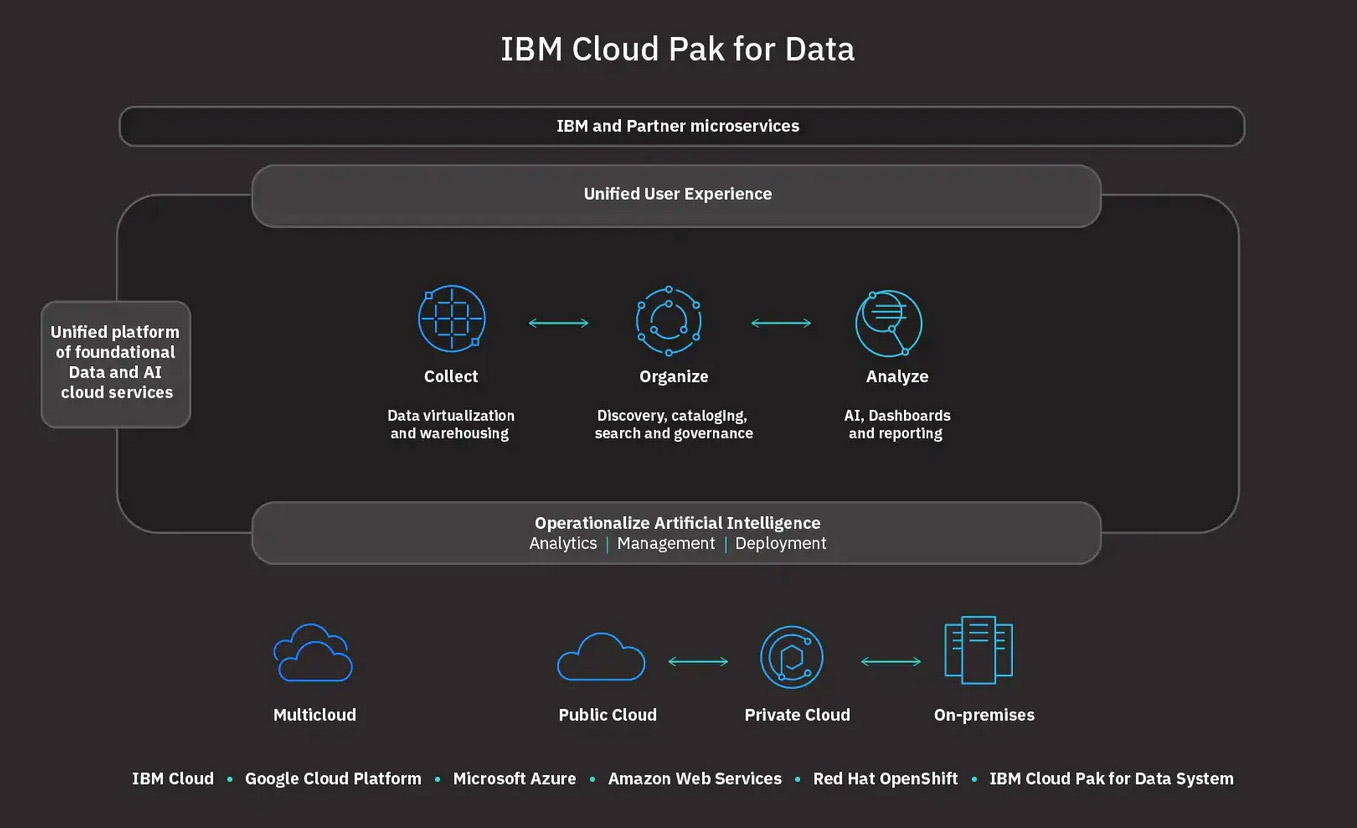What is IBM Cloud Artificial Intelligence?
IBM Cloud Artificial Intelligence (AI) is a suite of cloud-based services that combines the power of artificial intelligence, machine learning, and data analytics to help organizations solve complex problems and drive innovation. By leveraging the flexibility and scalability of cloud computing, IBM Cloud AI enables businesses to build, train, and deploy AI models quickly and efficiently, without the need for extensive infrastructure investments.
In the modern technology landscape, AI has become a critical component for businesses seeking to gain a competitive edge. From improving customer experiences and streamlining operations to driving new revenue streams, AI offers numerous benefits for organizations across various industries. IBM Cloud AI harnesses the potential of AI and cloud computing, providing a robust platform for businesses to implement AI solutions at scale.
Key Features and Benefits of IBM Cloud AI
IBM Cloud Artificial Intelligence (AI) offers a wide range of features and benefits that make it an attractive choice for businesses looking to leverage AI solutions. Some of the key advantages of IBM Cloud AI include:
- Ease of use: IBM Cloud AI provides an intuitive user interface, making it easy for developers and non-technical users alike to build, train, and deploy AI models.
- Integration with other IBM services: IBM Cloud AI integrates seamlessly with other IBM offerings, such as IBM Watson Studio, IBM Watson Assistant, and IBM Cloud Functions, enabling users to create end-to-end AI workflows.
- Scalability: With its cloud-based infrastructure, IBM Cloud AI can easily scale to handle large datasets and high-traffic applications, ensuring optimal performance and reliability.
- Machine learning capabilities: IBM Cloud AI supports various machine learning algorithms, enabling users to build, train, and deploy custom models tailored to their specific needs.
Some of the notable IBM Cloud AI products and services include:
- Watson Assistant: An AI-powered conversational agent that can understand and respond to natural language queries, enabling businesses to create engaging, personalized customer experiences.
- Watson Speech to Text: A powerful speech recognition service that can transcribe audio and video content in real-time, facilitating the development of voice-enabled applications and services.
- Watson Visual Recognition: A computer vision service that can analyze and classify images, enabling businesses to extract valuable insights from visual data.
How to Get Started with IBM Cloud Artificial Intelligence
Getting started with IBM Cloud Artificial Intelligence is a straightforward process. Follow these steps to sign up for IBM Cloud and begin using its AI services:
- Visit the IBM Cloud registration page and click on the “Create an IBM Cloud account” button.
- Fill out the registration form with your email address, password, and other required information. Make sure to read and accept the terms and conditions before submitting the form.
- Once your account is created, log in to the IBM Cloud dashboard and navigate to the “Catalog” section.
- Browse the AI services available in the IBM Cloud catalog, such as Watson Assistant, Watson Speech to Text, or Watson Visual Recognition. Click on the “Create” button next to the service you want to use.
- Configure the AI service according to your needs. This may include setting up resources, connecting to external data sources, or defining custom models.
- Once your AI service is configured, you can start building, training, and deploying machine learning models. The IBM Cloud documentation and tutorials provide detailed instructions and examples to help you get started.
By following these steps, you can quickly sign up for IBM Cloud and start using its AI services. The intuitive user interface and comprehensive documentation make it easy to create and manage AI workflows, even for users without extensive technical expertise.
Real-World Applications of IBM Cloud Artificial Intelligence
IBM Cloud Artificial Intelligence (AI) has been successfully implemented across various industries and use cases, providing businesses with valuable insights and automation capabilities. Here are some examples of companies that have benefited from IBM Cloud AI:
- Healthcare: Healthcare providers have used Watson Assistant to improve patient engagement and streamline administrative tasks. For instance, the Memorial Sloan Kettering Cancer Center has integrated Watson Assistant into its patient portal to provide personalized care plans and recommendations.
- Retail: Retailers have leveraged IBM Cloud AI for inventory management and customer experience enhancement. For example, the North Face uses Watson Assistant to help customers find the perfect outdoor gear based on their preferences and requirements.
- Finance: Financial institutions have used IBM Cloud AI to detect fraud, manage risk, and improve customer service. Wells Fargo, for instance, has integrated Watson Assistant into its mobile app to help customers with their banking needs.
- Manufacturing: Manufacturers have utilized IBM Cloud AI to optimize production processes, improve quality control, and predict maintenance needs. For example, GE Appliances uses Watson IoT to monitor appliance performance and predict potential issues before they occur.
These examples demonstrate the versatility and effectiveness of IBM Cloud AI in solving real-world business challenges. By leveraging the power of AI and cloud computing, organizations can unlock new opportunities, streamline operations, and gain a competitive edge.
Comparing IBM Cloud AI to Other AI Platforms
When choosing an AI platform, it’s essential to compare the features, benefits, and limitations of each option. Here’s a brief comparison of IBM Cloud AI with Google Cloud AI, Amazon Web Services (AWS) AI, and Microsoft Azure AI:
- IBM Cloud AI: IBM Cloud AI offers a wide range of AI services, including Watson Assistant, Watson Speech to Text, and Watson Visual Recognition. It is known for its ease of use, seamless integration with other IBM services, and robust data management capabilities. IBM Cloud AI is well-suited for organizations seeking a comprehensive AI platform with strong data privacy and security features.
- Google Cloud AI: Google Cloud AI provides powerful AI tools, such as AutoML, Vision AI, and Natural Language API. It is renowned for its advanced machine learning capabilities and integration with Google’s data analytics and cloud storage services. Google Cloud AI is an excellent choice for businesses already using Google’s suite of tools and seeking a scalable AI platform.
- Amazon Web Services (AWS) AI: AWS AI offers a variety of AI services, including Amazon SageMaker, Amazon Rekognition, and Amazon Lex. It is praised for its extensive infrastructure, flexible pricing, and integration with other AWS services. AWS AI is ideal for organizations looking for a cost-effective AI platform with a high degree of customization and scalability.
- Microsoft Azure AI: Microsoft Azure AI includes services like Cognitive Services, Azure Machine Learning, and Azure Bot Service. It is recognized for its strong natural language processing capabilities, integration with Microsoft’s productivity tools, and hybrid cloud support. Azure AI is a suitable option for businesses already using Microsoft’s software ecosystem and seeking a unified AI platform.
Ultimately, the best AI platform depends on an organization’s specific needs, existing infrastructure, and budget. By understanding the unique features and benefits of each platform, businesses can make informed decisions and choose the AI platform that best aligns with their goals and requirements.
Best Practices for Implementing IBM Cloud Artificial Intelligence
To ensure a successful implementation of IBM Cloud Artificial Intelligence, consider the following best practices:
- Data management: Ensure that your data is clean, well-structured, and relevant to your AI project. IBM Cloud AI provides various data management tools, such as IBM Cloud Databases and IBM Cloud Object Storage, to help you store and manage your data effectively.
- Model training: Train your machine learning models using diverse and representative datasets. IBM Cloud AI offers tools like IBM Watson Studio to streamline model training and evaluation, enabling you to create accurate and reliable models.
- Deployment strategies: Consider the infrastructure and resources required for deploying your AI models. IBM Cloud AI provides flexible deployment options, such as containerization with IBM Cloud Kubernetes Service or serverless computing with IBM Cloud Functions, to help you scale and manage your AI applications efficiently.
- Integration with existing systems: Seamlessly integrate IBM Cloud AI into your existing systems and workflows. Leverage IBM Cloud’s API management capabilities and event-driven architecture to create cohesive and efficient AI-powered solutions.
- Monitoring and optimization: Continuously monitor your AI models’ performance and optimize them as needed. IBM Cloud AI provides tools like IBM Cloud Monitoring and IBM Log Analysis to help you track your AI applications’ health and performance, ensuring they meet your expectations and requirements.
By following these best practices, you can effectively integrate IBM Cloud Artificial Intelligence into your systems and workflows, ensuring a successful and impactful AI implementation.
Security and Compliance Considerations for IBM Cloud Artificial Intelligence
Security and compliance are critical factors when implementing AI solutions. IBM Cloud AI offers robust data privacy, protection, and regulatory compliance features to help businesses meet their security requirements:
- Data privacy: IBM Cloud AI adheres to strict data privacy standards, ensuring that your data is protected and confidential. IBM Cloud provides features like data encryption, both at rest and in transit, to secure your sensitive information.
- Data protection: IBM Cloud AI offers various data protection mechanisms, such as access controls, identity and access management (IAM), and firewall configurations, to safeguard your AI applications and data from unauthorized access and cyber threats.
- Regulatory compliance: IBM Cloud AI supports numerous industry-specific compliance standards, including GDPR, HIPAA, and PCI-DSS, enabling businesses to deploy AI solutions that meet their regulatory requirements.
- Transparent reporting: IBM Cloud AI provides transparent and detailed reporting on security and compliance, enabling businesses to maintain visibility into their AI applications’ security posture and demonstrate compliance with relevant regulations.
By choosing IBM Cloud AI, businesses can rest assured that their AI applications and data are secure, compliant, and protected. IBM’s commitment to security and compliance helps organizations confidently adopt AI technologies and unlock their full potential.
Future Trends and Innovations in IBM Cloud Artificial Intelligence
IBM Cloud Artificial Intelligence continues to evolve, incorporating cutting-edge technologies and innovations to provide even more powerful and versatile AI solutions. Here are some emerging trends and innovations in IBM Cloud AI:
- Advancements in natural language processing (NLP): NLP capabilities in IBM Cloud AI, such as those found in Watson Assistant, are improving rapidly. Enhancements include better context awareness, sentiment analysis, and conversational abilities, enabling more natural and engaging user experiences.
- Computer vision innovations: IBM Cloud AI is advancing in computer vision, enabling more accurate image and video analysis. Watson Visual Recognition, for example, is becoming more sophisticated, allowing businesses to extract valuable insights from visual data.
- Edge computing: As AI applications require real-time processing and decision-making, edge computing is becoming increasingly important. IBM Cloud AI supports edge computing, enabling businesses to deploy AI models on edge devices for faster, more efficient processing.
- Explainable AI: As AI becomes more prevalent, understanding how AI models make decisions is crucial. IBM Cloud AI is focusing on explainable AI, providing transparency into model decision-making processes and helping businesses build trust in their AI systems.
- Integration with IoT and 5G: The growth of IoT devices and the rollout of 5G networks will significantly impact IBM Cloud AI. IBM Cloud AI is developing features to seamlessly integrate with IoT devices and leverage the high-speed, low-latency connectivity provided by 5G networks.
By staying at the forefront of AI trends and innovations, IBM Cloud AI continues to empower businesses with advanced, scalable, and secure AI solutions. These advancements will help organizations unlock new opportunities, streamline operations, and drive growth in the ever-evolving AI landscape.




